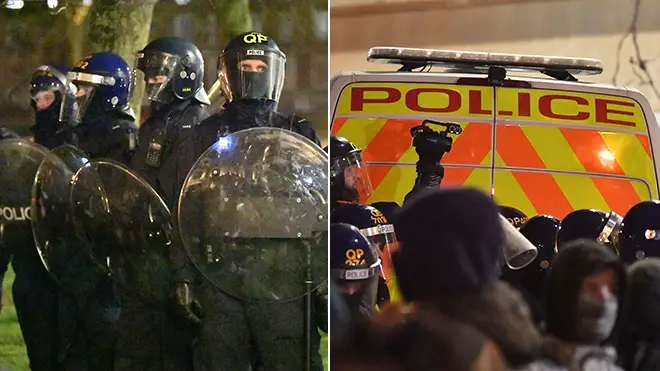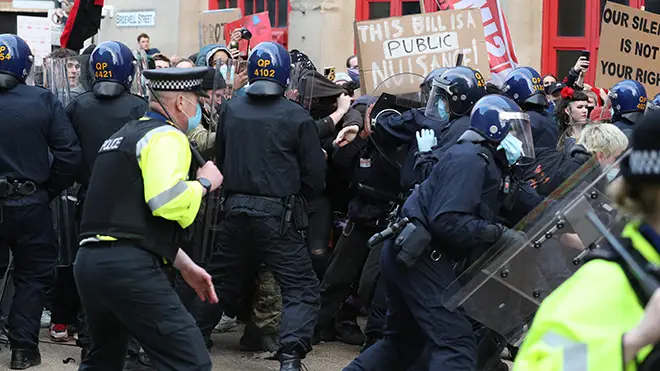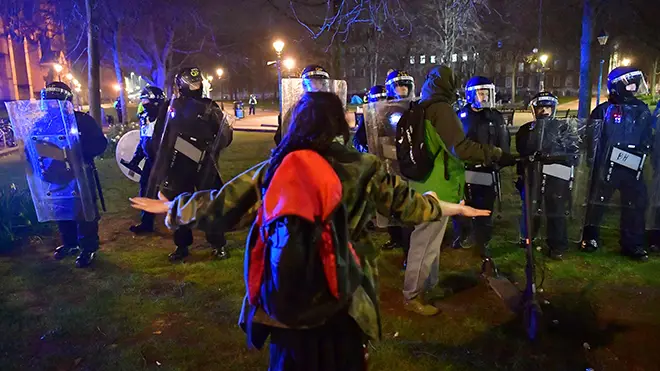
Ian Payne 4am - 7am
24 March 2021, 11:30

Protests in Bristol caused further arrests and injuries for a second night but what is the ‘Kill the Bill’ protest about? Here’s what you need to know about the Police, Crime, Sentencing and Courts Bill.
‘Kill the Bill’ protests in Bristol have continued for a second night leading to 14 more arrests.
This follows the rioting actions which happened on Sunday 21st March which included 21 injured police officers, vehicles set alight and a police station attacked - so exactly why are people protesting in Bristol?
The Bristol protests are about the new laws currently making their way through Parliament called the Police, Crime, Sentencing and Courts Bill which includes new proposals on crime and justice with a section on changing how police can handle protests in England and Wales.
Related article: Police release pictures of 10 'Kill the Bill' riot suspects
Related article: Starmer tells LBC violence at Bristol protest 'inexcusable' and 'completely unacceptable'
Here’s everything you need to know on the ‘Kill the Bill’ protests in Bristol including why they’re happening and what the bill looks to change:


Rioters violently clash with police in Bristol
Violent crimes have been carried out on two protests in Bristol recently as members of the public show their rejection of the new proposed government laws, the Police, Crime, Sentencing and Courts Bill.
Essentially, the bill means new rules and restrictions can be put in place by police in order to control protests as well as further laws for serious crimes and tougher sentencing.
However, there are concerns about human rights in regards to freedom of expression and the right to protest and women’s rights campaign groups are concerned the bill fails to introduce overdue measures for violence against women.
Police, under the new laws, will be able to put more restrictions in place including a start and finish time, noise limits and makes it an offence to “intentionally or recklessly cause public nuisance”.
Protestors will have broken the law if they fail to follow restrictions they “should” know about.
At the moment, police have to prove protestors knew they had been told to move on before being able to take any action.
It also includes a measure to prevent damage to memorials and can even apply to a single-person protest.

Not just about protests, the bill includes changes to how the law handles certain violent crimes and prison sentences. This includes: